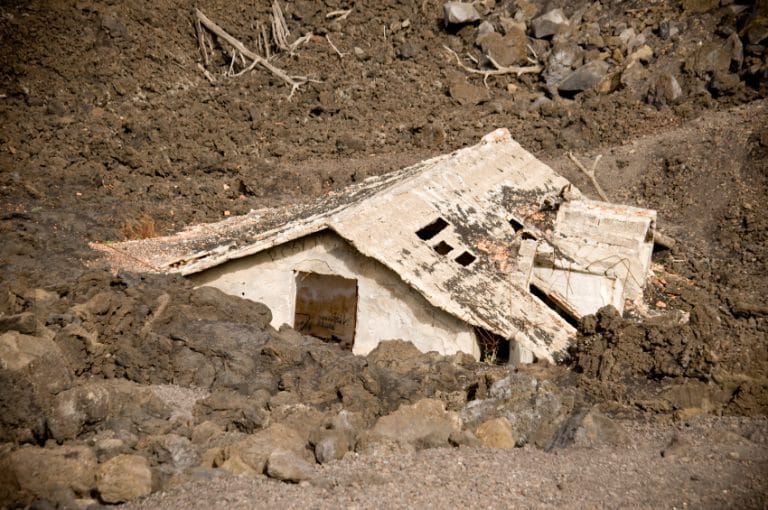Portland Home Buyers’ Guide to Landslides

Portland, Oregon is one of the safest places to live in the country. We have a low crime rate, our air quality is great, and hurricanes and tornadoes are pretty much nonexistent. So what do we have to worry about?
Slides. No, not kids in parks having too much fun, but landslides! When you combine hills — which Portland has a few of — and rain — which we get lots of — there’s a tendency for unstable land to shift and move downhill.
Is that a turn-off for real estate buyers? It doesn’t appear to be, given Portland’s fast-paced housing market. Though landslides have occurred here since the pioneer days, geologists now know what causes them and how to prevent them in the first place. In fact, saavy home buyers (and their real estate agents) can usually see the signs of a landslide waiting to happen — and then back away slowly from that home! Either that or they call in a local erosion expert or structural engineer to ensure the home is not in danger of sliding.
Portland State University and FEMA have put together a “Homeowners Guide to Landslides” that highlights the information that Portland home buyers need to know.
Simply put, a landslide is the action of rock, soil and/or debris moving downhill. Slides can happen in a matter of seconds or over the course of a few weeks. Most of the time, landslides are an inconsequential and natural process of the landscape, but when there are homes and roads located in the area, problems occur.
Click here for a targeted Portland map on potential landslide concerns.
The Pacific Northwest is not alone in experiencing landslides; they happen all over the United States. In fact, looking at the USGS map for landslide risk included in the PSU/FEMA guide, Portland is only at a low-to-moderate risk with some high risk areas occurring in the hills to the west and east of the metro area. Because they typically aren’t covered by homeowners’ insurance, landslides are a threat to real estate value, though they actually kill fewer people than lawn mower accidents.
Here’s what to look for when you’re checking out real estate in the Portland area, especially in the hilly areas:
- Steep slopes, especially those loaded with materials on top or saturated with water from irrigation or gutter downspouts.
- Cracks in the ground, pavement or retaining walls.
- Soil moving away from the foundation of the house.
- Signs that slides have occurred before. These include hummocky ground and sudden dropoffs, as well as trees that are bent (indicating that the land beneath them moved and caused them to change their direction of growth).
- A lack of vegetation on a hillside. Deep plant roots lock down hillsides and keep them from moving, so even moderately sloped areas that have been devegetated are prone to landslides.
The unfortunately reality is, in an effort to capitalize on the booming Portland housing market, some developers have built homes where they never should have and created hillsides that are unsafe and unstable. Unsuspecting real estate buyers buy a home based on price and looks, without checking out the land itself. Don’t let it be you! Have an experienced Portland real estate agent on your side and do your own research if you suspect that the home of your dreams might be on unstable ground.


